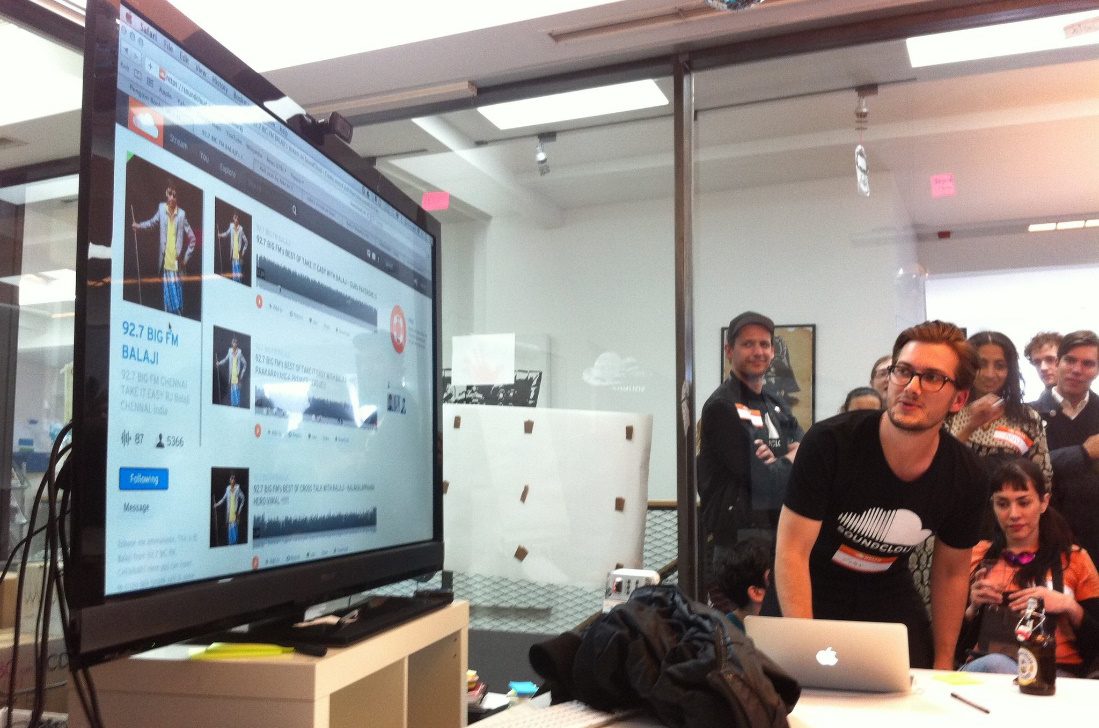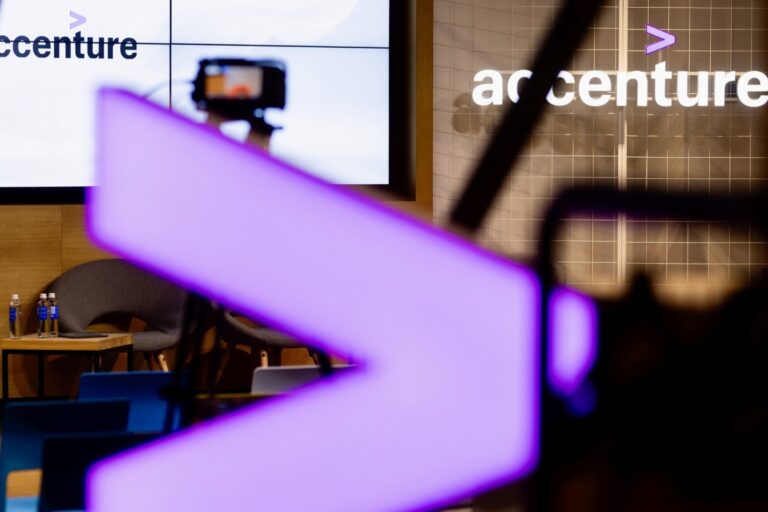SoundCloud’s Got Enough Chances to Make a Reversal of Fortunes, Just How?
SoundCloud is considered by many to be the heart and soul of the underground music scene, and it’s historically free-hosting guarantee granted it lasting importance when coupled with the rise of artists such as Chance the Rapper and XXXTentacion, who made a significant name for themselves off of this free platform.
In 2017, an anonymous source revealed that SoundCloud’s funds were only enough to keep its site up for the next 50 days! The management of the company had to lay off almost 40% of their staff and close offices in San Francisco and London. Good news is that it’s almost 2021 and we’re still able to use SoundCloud without problems. But what actually happened to our beloved site?
SoundCloud: What Worked, and What Needs Changing
Short answer – we all make mistakes, unfortunately CEOs of SoundCloud made quite a few.
The long answer is much more complicated. SoundCloud was created by two inexperienced but very enthusiastic founders who did everything to keep the site from crashing. They were thrown into the deep waters of running large scale business. SoundCloud’s CEOs have been struggling with negotiating with major music labels about licensing as well as creating plans and models to make a stable profit out of users of the site.
How it was born
In October of 2008, sound designer Alexander Ljung and electronic musician Eric Wahlforss launched SoundCloud.

Although the platform was originally advertised as being a tool for facilitating collaboration between artists through sharing and discussing upload-able audio files, the duo quickly saw the advantage of expanding to being a publishing tool for the unknown artist as well.
While SoundCloud now has a mid-range subscription tier titled SoundCloud GO (one that removes ads and allows for offline listening for $9.99 monthly fee) in addition to SoundCloud Pro (which for $15.99 a month extends hosting time for creators as well as giving in depth statistics on interactions), it was its beginnings as a wholeheartedly free service that gave it the place in people’s hearts that it has.
The site grew in popularity over the next 3 years, and in 2012, SoundCloud officially announced that it had now begun to reach, “‘180 million people per month’, with 10 hours of content being uploaded per minute.” This was a dramatic increase from the reported 10 million registered users the site disclosed were using the platform just a year prior.
However, two years later in January of 2014, SoundCloud announced that the company was in licensing negotiations with major businesses of the music industry in an attempt to deal with unauthorized posting of copyrighted materials.
YouTube had been dealing with issues similarly at the time, and SoundCloud was doing the best it could to avoid repeating the mistakes of others. This legal difficulty in addition to the near launching of the SoundCloud mobile app created turbulence for the company, and while they were able to continue with business, the kindling for the metaphorical legal fire had been set.
In hushed voices throughout the music industry, the rumors began to spread that SoundCloud was likely to be acquired. In the summer of 2015, it was reported that Twitter was considering acquiring SoundCloud for an estimated 2 billion dollars. Fall of the next year, Spotify was next to announce that the company was potentially in their sights.
All talks of this nature regarding SoundCloud were shaken when SoundCloud announced in July of 2017 that the company would be closing offices in both San Francisco and London, in addition to a 173-person layoff out of their 420 person staff. Later on, that same year, Alexander Ljung announced his resignation as CEO, and informed the community that the former CEO of Vimeo would be taking his place.
SoundCloud in Comparison
With SoundCloud’s largest competition being Spotify and Apple Music, those are the two opposing Digital Service Providers that we will look at in comparing SoundCloud’s capabilities.
Between these three providers, there are three distinct factors that all come into play when deciding which will best suit your needs as a listener: cost, quality, and function.
On the financial side, SoundCloud offers listening and sharing of audio files less than two hours in length with ads free of charge, and additionally offering a $9.99 monthly subscription to SoundCloud GO, removing the ads and allowing for longer hosting.
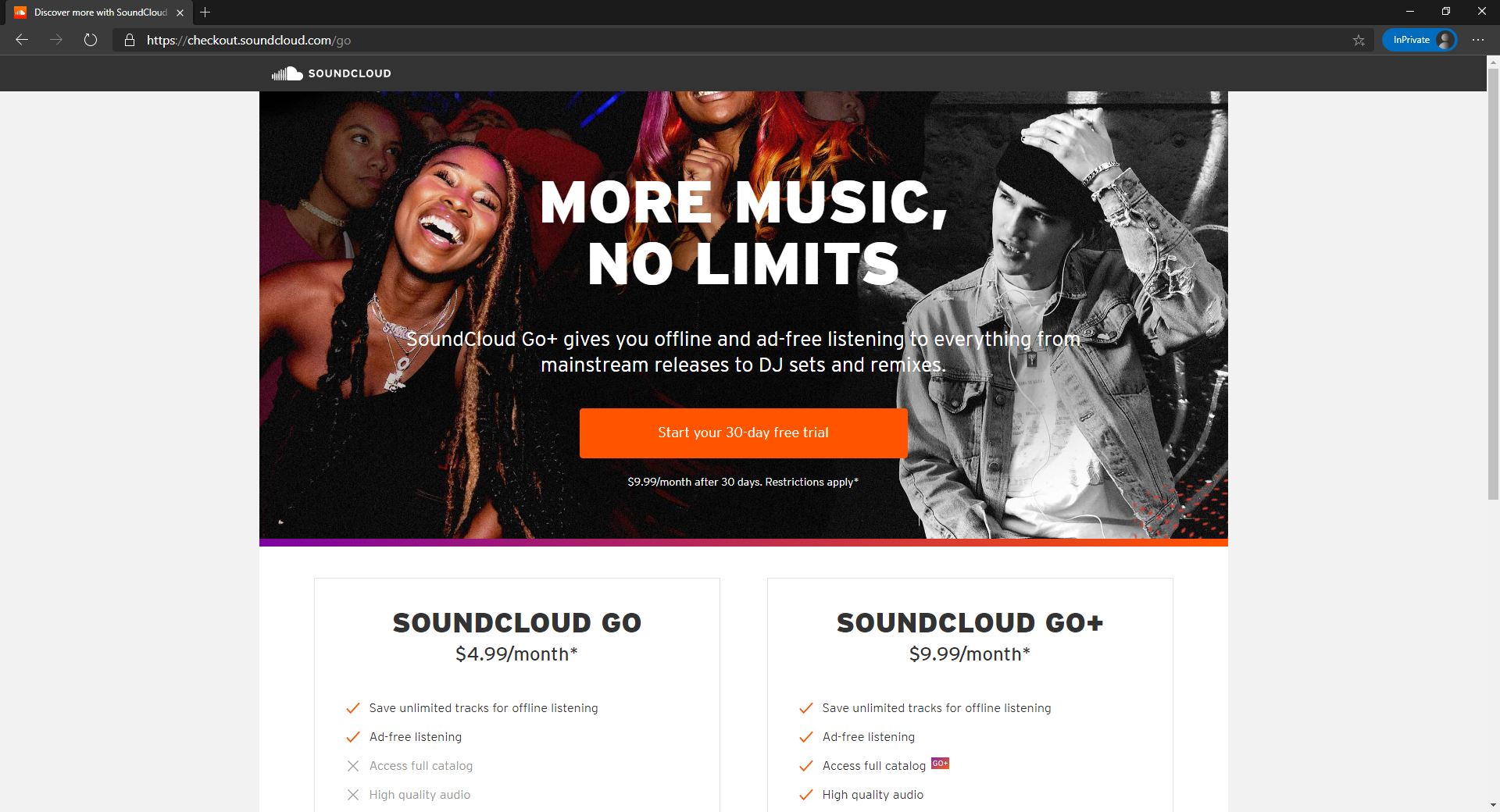
In addition to these factors, in recent years, SoundCloud’s ability to make deals with individual artists has also allowed them to begin hosting larger releases for streaming as they come out in order to generate higher traffic, a good example of this being Drake’s “Scorpion” album last year being available for streaming on SoundCloud GO very early on in its release cycle.
For Apple Music and Spotify however, things are a little different. Both these services operate on a subscription-based model, while still offering a free-to-use, ad-revenue-generating version, but Spotify and Apple Music have benefits such as higher quality audio files, a larger catalog of songs with more exclusives, and added appeal of family-plan style deals.
In regard to the quality of the streaming being provided, there is a large difference in capability between the platforms. While Spotify and Apple Music can provide streaming speeds of up to 320 kbps or higher, all SoundCloud tracks, regardless of monthly subscription are only capable of playing at 128 kbps and can reach as low as 64 kbps on the mobile platform.
SoundCloud does have a leg up in functionality, as the offline downloading ability of the service is much more inclusive, and only some tracks are unavailable for download to be stored directly on your personal device, Spotify and Apple Music only allow for offline tracks to be stored directly into the service, and only accessible through the service.
SoundCloud overall has issues when stacked up against its competition, and rather arcane qualities of its function hold it back from being considered along the same lines as Spotify and Apple Music. While there is the exclusivity from the underground music scenes loyalty to SoundCloud for releases, it is very questionable how much that draw will truly have in the future as these services continue to diversify.
Successes and Stumbles
While many artists have used SoundCloud’s free to host medium as a birthplace for their fan-bases, few artists have had a meteoric rise to fame on the platform similar to how XXXTentacion did. While his breakout single, “Look at Me!”, was technically called a “sleeper hit” as the song took about a full year to take off on the platform, it grabbed 150 million plays on the service, with virtually no marketing or promotional activity to support the single as XXXTentacion was incarcerated at the time of the songs release.
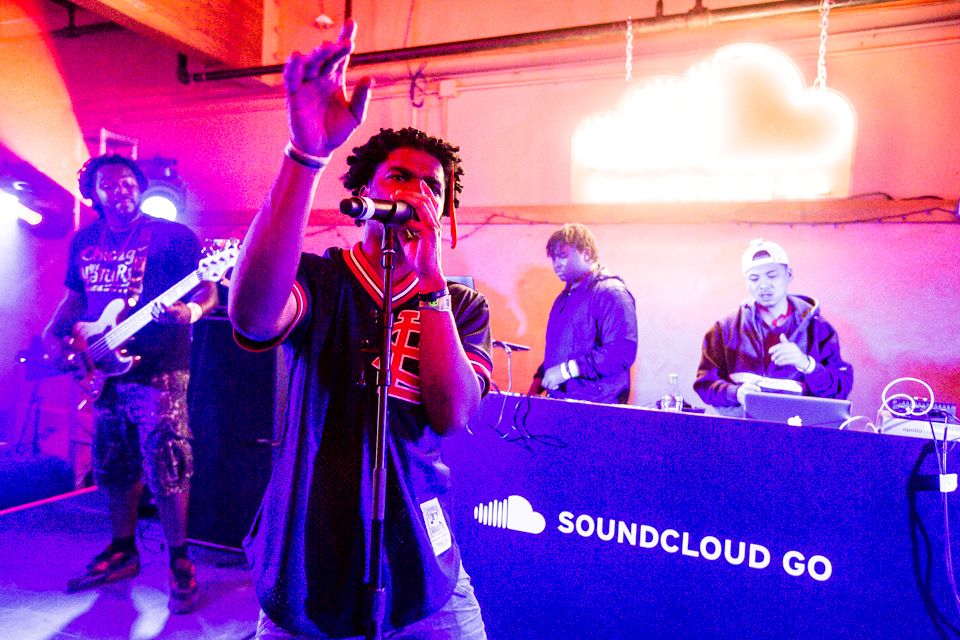
Local buzz, in addition to a loyal base of fans allowed for the song to skyrocket in a very short amount of time, with very small amounts of upkeep on the part of the artist, and not a single dollar paid to host it. By the time of his release in 2016, the song was about to be re-released through Empire, and XXXTentacion had become a national phenomenon in what seemed to most music-listeners to be an overnight sensation.
Another example of SoundCloud’s effectiveness when used correctly is the aforementioned relationship that Drake, the godfather of all that is good and holy, has to the site. While Drake maintains a steady relationship with the more major distributors and modernized DSP’s, his continual usage of SoundCloud as a backchannel to generate even more publicity through those same exclusive releases spoken about earlier allows him to have an even deeper infrastructure to his distribution.
In addition to that, on more personal terms for fans of his, there is a wealth of older songs of his that were never released anywhere else that have fans returning to SoundCloud repeatedly to enjoy them. Songs like “Girls Love Beyoncé” and “How ‘Bout Now” are extremely popular, but can’t be found anywhere else, and overtime have become a very essential part of his relationship to the platform.
Not everyone has this kind of success on SoundCloud however, and issues with things such as copyrighted materials still pose a major issue in the post-modernist genres that frequent the site. For example, a notable act of the last year has been Juice WRLD, and with his first major single “Lucid Dreams” being released on SoundCloud, people were looking to the site as the only place to listen to his music for a time.
However, due to an issue in SoundCloud’s copyright protection algorithms, an unlicensed and blatantly obvious rework of Sting’s “Shape of My Heart” was able to be hosted online for a majority amount of the songs release cycle, without notice. The song was completely demonetized, and seizure of the assets were carried out about a year after the songs release, well into Juice WRLD’s now staggering popularity.
Another example of an issue is when Justin Bieber tried to post music on the site from a separate account than his primary SoundCloud profile and was immediately hit with a ban on content because SoundCloud couldn’t process the change in login. These issues relating to copyright are a repeating issue for SoundCloud, and their inability to deal with this effectively greatly affects their rate of subscription compared to other platforms.
Any Possible Turnaround Strategies for SoundCloud?

Having read this far, you shouldn’t be shocked if SoundCloud went away tomorrow!
Which would be a shame, given that it’s still the biggest website in terms of uploaded music. If you don’t count YouTube — which is a pretty big caveat because this internet video giant is eating SoundCloud’s lunch, too.
On the paid side, Apple (by being default) and Spotify (by being the first mover) will decide victory among each other. Even the winner will have very thin margins. Folks who won’t pay the monthly fee are with Amazon Prime Music or – you guessed it – YouTube.
What could SoundCloud do? It seems a strategic shift is necessary now. SoundCloud needs differentiating features that YouTube can’t or won’t match.
#1. Offer Direct Payment Option
SoundCloud pays artists, but it’s only based on played streams.
Since artists can allow the download of tracks it’s not obvious to me why an artist can’t charge a fee for a downloaded song/album as well. SoundCloud would be an instant competitor to band camp and one step closer to being the label for the digital age.
That applies only if the terms and conditions are indeed better than they are with labels. At the moment that’s hardly the case.
#2. Make SoundCloud the Player for All Things Audio
Business models can consist of bundling or unbundling certain services or contents for the consumer. People would propose SoundCloud tries to be the one-stop-shop for every use case regarding listening to something.
This could include:
- SoundCloud content (“exclusives”)
- Podcasts (by grabbing the public feeds without re-hosting them)
- Music hosted on YouTube
- Personal audio files (either on local hard disk, network drive or in the cloud — Pro users could be offered a cloud locker feature like iTunes Match)
- Internet Radio stations
- Pandora
- HypeMachine
Audiophiles may still remember Songbird (2013). It tried to do similar things in a very nerdy way. It’s unsure that it would work to this day, but back then Spotify Pro users could listen to their stuff right through Songbird. Even if that’s not the case, keep in mind that the combination of YouTube (mainstream) with SoundCloud (niche) covers the musical needs of 98%.
Now imagine what a compelling proposition SoundCloud would be: All your subscriptions, favorites, and settings behind a single login. This one “skill” would make a smart speaker/display very powerful.
What is needed: Web & mobile app that can play more than SoundCloud content. A podcasting app could be used as technological base. (Songbird is open source).
#3. Spin a Network around All Activities
SoundCloud already has the network — you can follow users or artists and like or repost their tracks and playlists. Now that SoundCloud has access to even more data that is played through the service, the activity feed makes a lot of sense. Basically like Last.fm, it could offer a summary of your musical taste regardless of where the music came from.
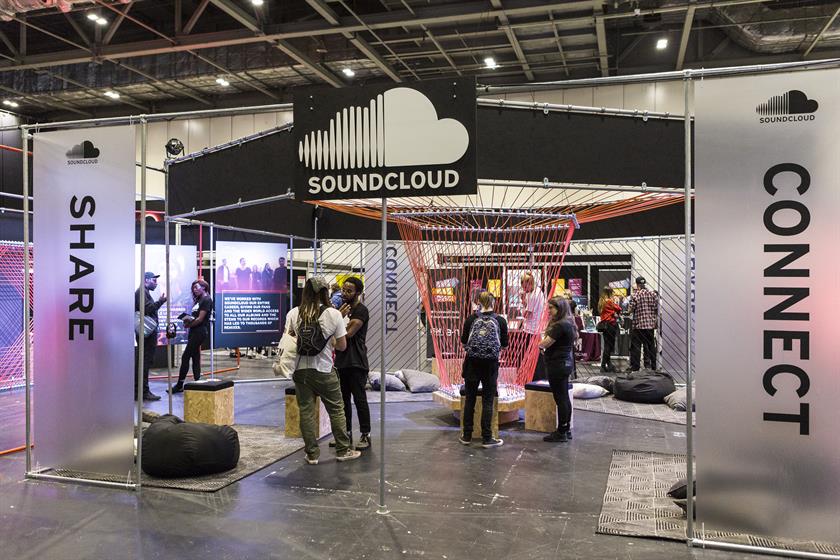
And: It’s much easier to get from network to feature instead of getting from feature to network. SoundCloud still has some amount of network left that it should leverage. That Last.fm plays no role in today’s world is thanks to their complete lack of development since their acquisition – a void that wants to be filled by music enthusiasts.
#4. Build the “Google for Audio”
Now we have a more or less universal directory of audio files with metadata and data about how they are connected with each other. It’ll be fantastic that SoundCloud has a few engineers who can do Speech-to-Text, because that is what’s currently missing from the audio world.
For example, you would like to know the name of the luxury company Horace mentioned in his Talk Show episode alongside Apple. If it’s not in the show notes, you have no choice but to listen to the whole 70 minutes again. This is like having your top blogs in your bookmarks bar and not searchable. If we were talking about written text, you would get the answer in a few seconds, thanks to Google.
There’s a lot of knowledge hidden in Podcasts as of 2020. Not to mention that music is also better with the lyrics in front of you. Somebody could transcribe and therefore lift that treasure chest. Naturally, it wouldn’t be a perfect translation from the get-go, but the creator or fan could alter the output Wikipedia-style.
Of course, there are other valid options, but something radically needs to be done, otherwise SoundCloud will bleed to a sure death.
What is needed: The money to invest in a unique semantic audio search, either by doing it in-house or with a cloud service.
$75M Invested by SiriusXM: A New Chance for SoundCloud?
Speaking of money, by the way, SoundCloud did have some big, strategic investment news at the beginning of 2020: It raised $75 million in funding from satellite radio giant SiriusXM, owner of streaming giant Pandora, which also has an ad partnership with SoundCloud.
Indeed, as an independent startup — and despite its surge of viral popularity and obvious street cred with a long roster of creatives using the platform to try out new things and send their songs and other sound-based work into the world — the SoundCloud of yesterday never really managed to surmount the licensing and larger monetization issues that all streaming companies face, despite raising a hefty $404 million in funding, just before SiriusXM stepping in.
But even as it has laid low, it has continued to grow, and the deal with SiriusXM is evidence that it’s definitely not done for yet. The funding will be used towards product development and launching new services, the companies said in a statement.
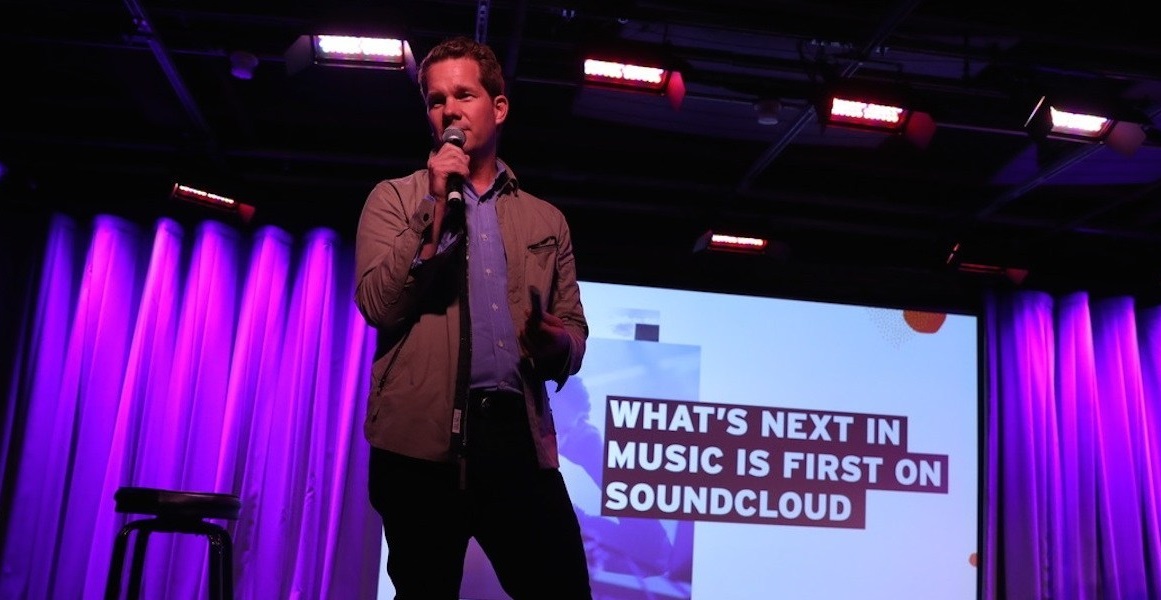
“SoundCloud’s three consecutive years of strong financial performance directly reflect the success of our creator-led growth strategy,” said Kerry Trainor, current CEO of SoundCloud, in a statement. “We have an exciting roadmap focused on deepening the connections between creators and listeners that fuel creator discovery, career growth and the evolution of music culture on SoundCloud. We’ve built a great relationship with SiriusXM through our highly successful Pandora ad sales agreement, and their investment gives us added capital flexibility to accelerate our vision and take advantage of strategic opportunities as they arise.”
It’s a tempting thought to wonder if this could convert into an acquisition of SoundCloud by SiriusXM. Indeed, it does provide a complement to Pandora and potentially fills a gap both for international audience — over 200 million tracks from 25 million creators with listeners in 190 countries — and also more original content.
Those who have used the platform to debut original music include Billie Eilish, Post Malone, Bad Bunny, Khalid, and Lil Tecca. For the independent artist operating in a rapidly modernizing industry, having faith in the business’ that you rely on to host your music is essential. And for a long time enough, SoundCloud held that faith.
There is much more to be done in the coming years, of course, but what we can clearly see is that SoundCloud has bought more time, and has more strategic buy-in now, for its future.

